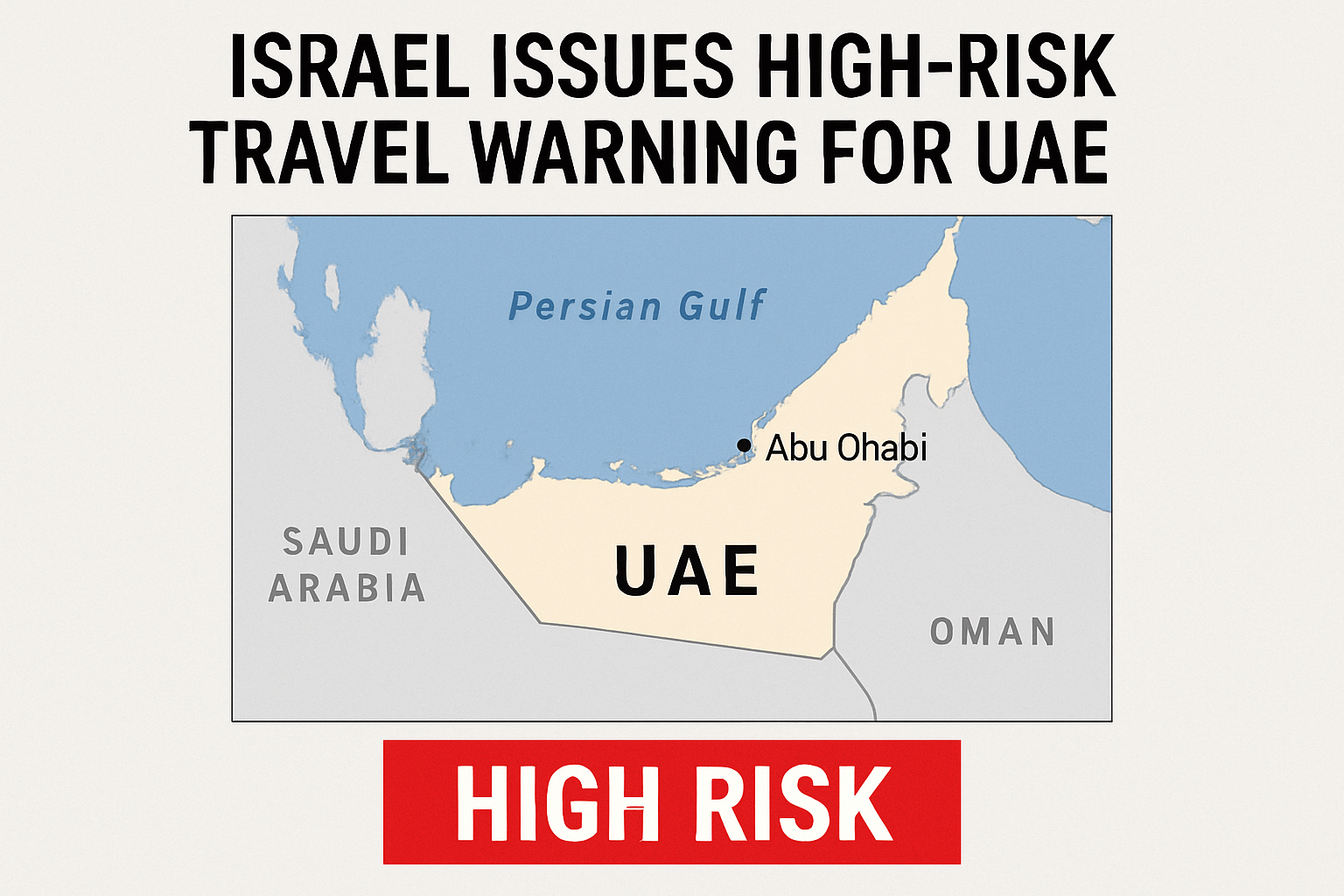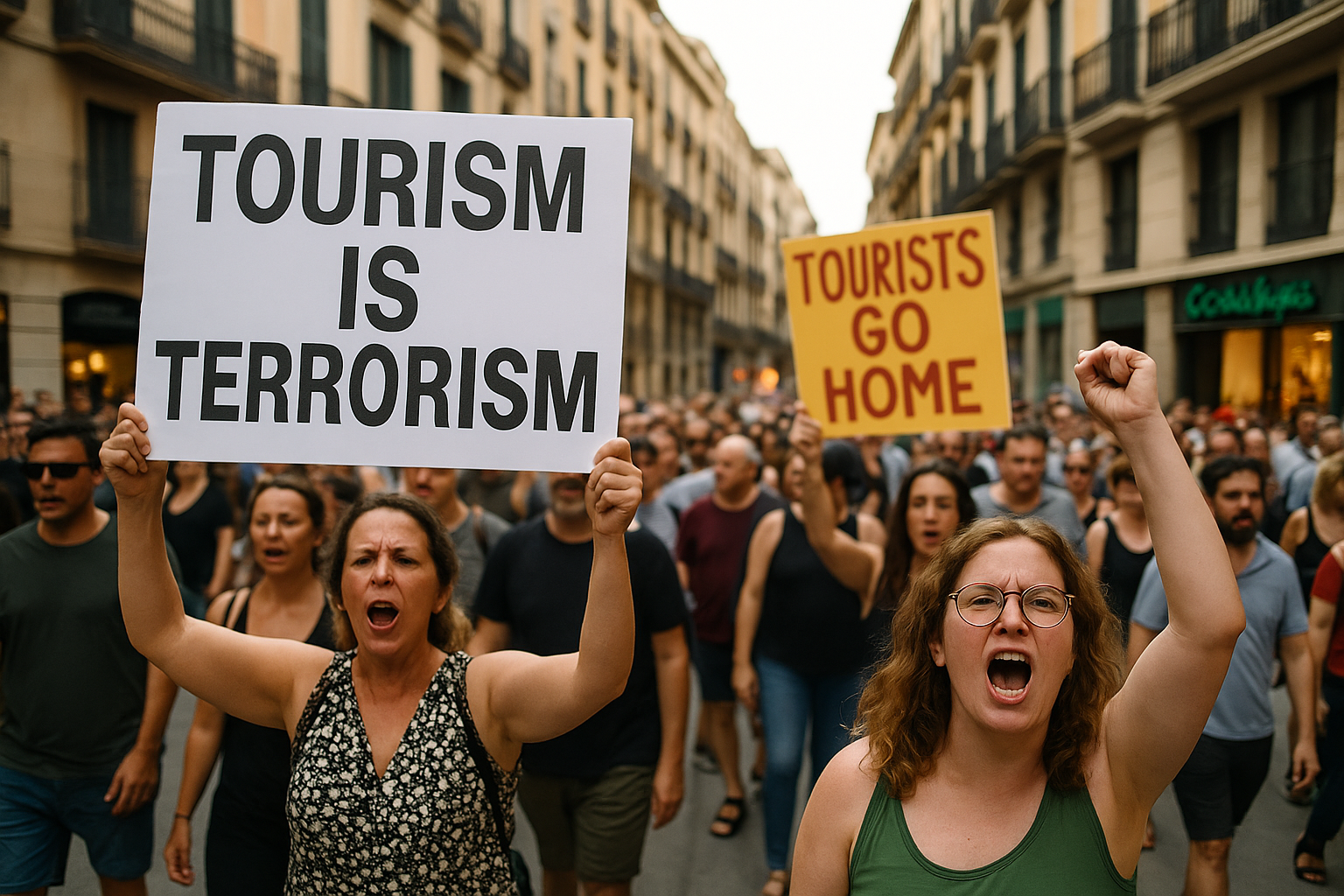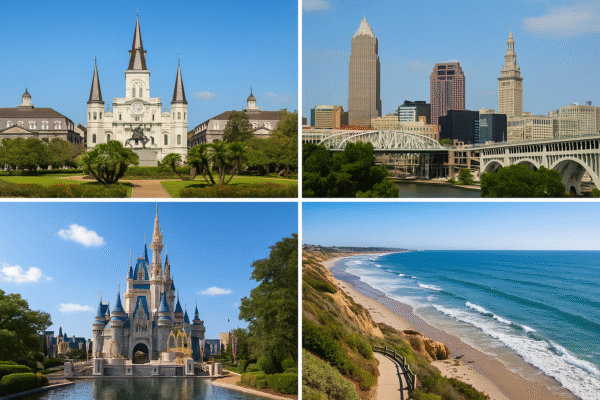Barcelona, Palma de Mallorca – June 2025:
Spain’s tourism sector has found itself at the center of unprecedented civil unrest, as large-scale anti-tourism demonstrations erupted across major cities, notably in Palma de Mallorca and Barcelona. What began as localized protests has morphed into a national debate on the sustainability and consequences of unchecked tourism growth.
With banners reading “Tourism is Terrorism” and chants demanding tourists “Go Home,” thousands of residents took to the streets on June 16 and 17, 2025. In one of the most publicized moments, demonstrators in Palma surrounded high-end restaurants like Cappuccino Borne in the historic city center, interrupting dinners of foreign tourists with water gun attacks, smoke flares, and slogans. Similar scenes unfolded in Barcelona, Spain’s second-most visited city.
While initially dismissed as isolated acts by fringe activists, the sheer scale and visibility of the protests have forced public officials and the global tourism industry to take notice. The unrest signals a deep-rooted dissatisfaction among locals who say they’ve borne the brunt of Spain’s booming tourism sector.
What Sparked the Protests?
At the heart of the protests lie longstanding grievances tied to rising housing costs, gentrification, and the erosion of community life in Spain’s most visited cities. Residents of Palma de Mallorca, a city that welcomes over 10 million tourists annually, argue that short-term holiday rentals—particularly those listed on platforms like Airbnb—have inflated property prices and driven locals out of their own neighborhoods.
Barcelona, similarly impacted, has experienced an influx of tourists in recent years that has transformed entire districts into hospitality hubs, often at the cost of local culture and affordability. Protesters argue that the daily rhythm of life has been replaced by transient visitors and businesses catering only to tourists.
One protester in Palma summarized the movement’s frustration: “As you come, I have to go.” This slogan was echoed in graffiti and social media posts throughout the week.
Local and National Response
The backlash has divided public opinion. Antoni Costa, Vice President of the Balearic Islands Government, strongly condemned the demonstrations, calling the actions “unacceptable” and “damaging to the region’s most vital industry.” He emphasized that while the concerns of residents are valid, targeting tourists risks irreparable harm to the economy.
Spain’s tourism sector employs approximately 2.7 million people and contributes over 12% to the nation’s GDP. In Palma alone, nearly 200,000 jobs are tied directly to tourism. The government now faces a daunting challenge: reconciling economic dependency on tourism with rising local discontent.
Impact on Tourism Industry and Travelers
Tour operators and hospitality providers are already reporting a rise in cancellations and a sharp drop in bookings for July and August. Airlines that service key routes into Spain are seeing lower-than-expected demand. Tourists, aware of the unrest through media coverage, are choosing alternative destinations perceived as safer and more welcoming.
This reputational blow could have lasting consequences. Travel advisors warn that continued protests and anti-tourist messaging could cause long-term brand damage to destinations like Barcelona, Palma, and even Madrid. Tourists are increasingly drawn to sustainable, community-centric travel experiences—a demand that Spain risks failing to meet if no action is taken.
The Broader Context: Europe’s Anti-Tourism Movement
Spain is not alone in its struggle. Cities like Venice, Amsterdam, and Dubrovnik have already imposed caps on cruise ships and tourist numbers. The rising movement across Europe reflects a paradigm shift in how tourism is viewed—not merely as a source of income, but as a force that must be managed responsibly.
Experts at the European Tourism Futures Institute note that mass tourism without adequate policy controls can erode local communities and environments. Spain’s protests, while disruptive, are also a warning sign to the global travel industry.
What’s Next: Embracing Sustainable Tourism?
In response, Spanish tourism authorities are considering new strategies to promote “better tourism” rather than simply “more tourism.” Among the proposed solutions:
- Imposing seasonal visitor limits in key cities
- Strengthening regulations around short-term rentals
- Diversifying tourism by promoting rural and lesser-known destinations
- Encouraging off-season travel to ease urban congestion
- Launching educational campaigns aimed at respectful tourism
The Ministry of Tourism is reportedly reviewing a nationwide policy shift that mirrors sustainability principles adopted in Scandinavian and Alpine destinations.
Tips for Tourists: Staying Informed and Safe
Travelers considering a trip to Spain are advised to:
- Stay updated via the Spanish Ministry of Interior and local tourism boards
- Purchase comprehensive travel insurance covering civil unrest
- Consider visiting lesser-known regions such as Asturias, Extremadura, or La Rioja for a more peaceful and authentic experience
- Avoid large gatherings or protest zones, particularly in Palma’s historic district and Barcelona’s Gothic Quarter
Conclusion: A Critical Turning Point for Spain’s Tourism
The anti-tourism protests of June 2025 are not merely a flare-up of local anger—they are a clarion call for change in how Spain approaches its most lucrative industry. The road ahead will require balanced policies, proactive engagement with local communities, and an industry-wide shift towards responsible and sustainable tourism.
As Spain looks to preserve its status as a top global destination, it must ensure that its cities remain not just places to visit, but places to live.
For more travel news like this, keep reading Global Travel Wire






















